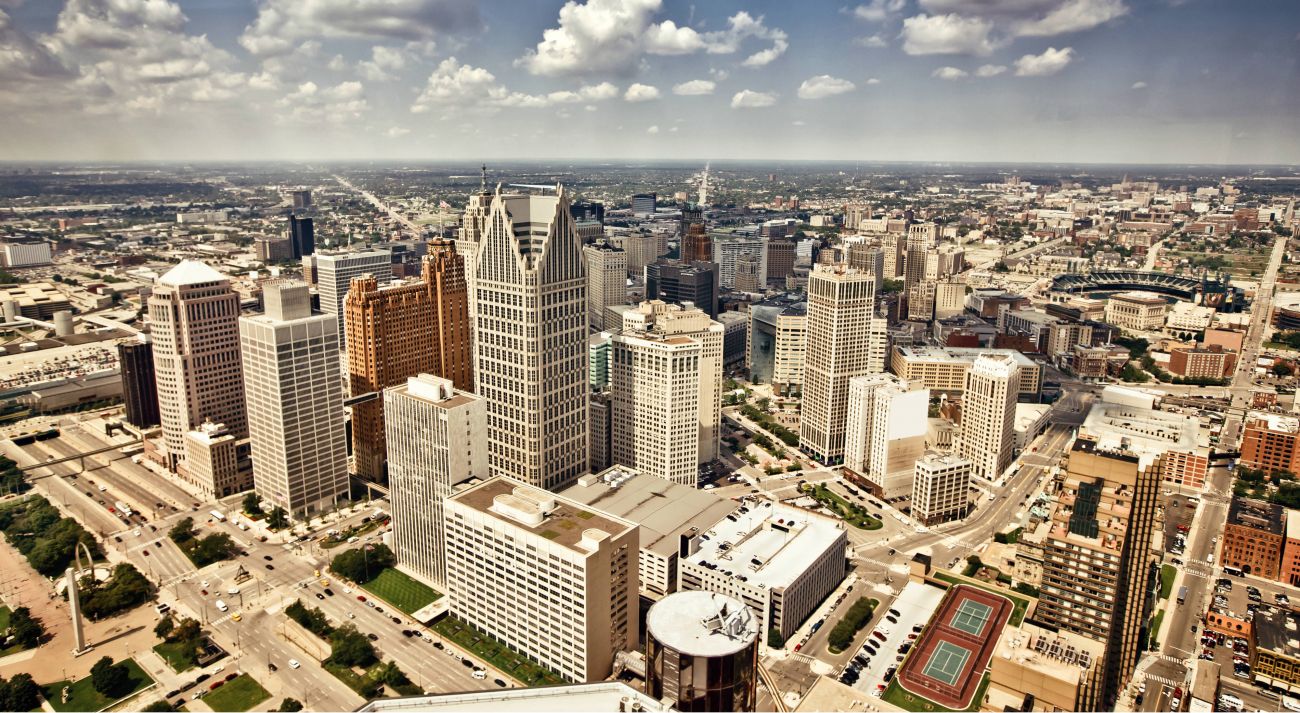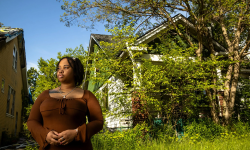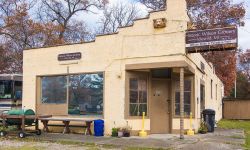Efforts across community begin to turn the coronavirus tide for Detroiters

Detroit passed a horrifying number recently: More than 1,000 city residents have died from COVID-19 in just over six weeks.
But the grim number came as recorded cases and deaths have slowed for more than three weeks.
Few U.S. cities have been hit harder than Detroit by COVID-19. By March 24, within three weeks of the coronavirus first being detected in Michigan, Detroit had one of the highest infection rates in the nation, at 83 cases per 100,000 residents. That was five times the statewide rate at the time. The number of cases and deaths surged for three weeks.
But amid that crisis, many actions took place to slow the horrifying spread. City officials acted quickly on a number of fronts. Key institutions such as major employers, churches, small businesses like grocers and various community groups joined the effort early. And it took a vast majority of Detroiters to practice social distancing during the state’s stay-at-home orders that began on March 24.
In the first seven days of April, 248 people died in Detroit from the virus. From April 22-28, 92 have died. As of Sunday, 1,088 Detroiters have lost their lives due to COVID-19 since the first two deaths were reported March 18, according to the latest city estimates.
The number of new cases is slowing, too. April 3 is the peak day of cases reported in a single day, with 374. From April 27 through Sunday this week, the daily total of new cases surpassed100 twice and fell as low as 29 on Friday. There are 9,385 Detroiters who have tested positive as of Sunday.

Other signs of improvement are city hospitals now have 100 empty intensive care unit beds. There are only 12 patients at the temporary field hospital at TCF Center, formerly called Cobo, that was equipped to handle 1,000. The peak number of patients at TCF Center has been 16. City officials now predict the temporary medical facility at the city’s convention center will soon close.
“We basically plateaued from the first of April to the 17th of April,” Mayor Mike Duggan said Thursday.
“The federal government keeps citing Detroit’s success. If we keep doing what we’re doing. Everyday’s conversation is going to be more and more about when we can restart” opening up various parts of the city,” Duggan said Thursday.
Some examples cited by many in the city and outside the city of what’s gone right so far:
- City officials stressed collaboration from the start. Duggan’s administration has consistently reached out to business groups, religious leaders, foundations and unions. U.S. Vice President Mike Pence praised city leaders recently. “Let me commend the leadership in Michigan and Detroit for the extraordinary efforts in advancing the guidelines,” Pence said in an April 27 interview with WDIV-TV. “We are encouraged by what we’re seeing in the numbers in the Detroit area, and really it is a tribute to the people in your community who have taken the guidelines about social distancing to heart. It accounts for the real progress we are seeing in Detroit and Michigan today.”
- The city set up a drive-thru testing site at the former State Fairgrounds on March 27, within a week of Gov. Gretchen Whitmer ordering her first statewide "stay home, stay safe” program that shut down virtually everything. At that point, about 400 city residents had tested positive for COVID-19. The city enlisted foundations and the expertise of Detroit-based Quicken Loans, Inc. for money and technical assistance to set up the testing site.
- The city was among the first in the country to receive machines and 15-minute testing kits from Illinois-based Abbott Laboratories. The quick tests were used initially to help screen police, firefighters, EMTs and city bus drivers.
- When data began to emerge that nursing homes residents are being hit hard by the virus, the city launched a 10-day effort to test staff and patients at the 26 nursing homes in Detroit.
Another example of many groups working together during the pandemic was getting more computers and internet access to Detroit students.
Anthony played a key role in a $23 million plan announced April 23 to get computer tablets and internet access to an estimated 51,000 K-12 students in Detroit. Anthony helped assemble the coalition that included the DTE Energy Co., Skillman Foundation, Quicken Loans., the City of Detroit and its school district to launch the initiative. It has been a long sought goal by many in the city.
“Out of this mess and devastation comes this commitment,” Anthony said. “We should recognize that achievement.”
On April 28, the city outlined how the first wave of city workers would return to the job this week with new safety measures.
“In my many, many, many years of doing this, this is the finest example of cooperative effort I’ve seen in a long, long time,” said Larry Roehrig, president of American Federation of State, County and Municipal Employees, AFSCME, Council 25. The union represents 160 of the workers returning to work.
“Sometimes, the hotter the fire, the stronger the steel,” Roehrig said. “I think the steel that comes out of this relationship, because of what we’ve been through, is going to be unparalleled and is going to be strong enough to get us through the rest of this.”
A wildcat strike by city bus drivers was settled after one day. On March 17, bus drivers were so angry about passengers coughing and sneezing that the drivers staged a wildcat strike. Duggan quickly met with the drivers and the worker walk-off lasted one day. After that they started getting gloves supplied to them and they wear masks when they can get them, said Glenn Tolbert, president of the bus drivers' union.
Then on March 21, driver Jason Hargrove posted a video of himself after a passenger had coughed four or five times without trying to cover her mouth.
"For you to get on a bus and stand on the bus and cough several times without covering up your mouth and you know they we are in the middle of a pandemic, that let's me know that some folks don't care, utterly don't give a [expletive,]" he says in the video.
His video went viral. The city set up more safety measures on buses. Passengers could only enter through the rear doors — the farthest from drivers. On each bus, gloves and masks were made available for passengers.
The extra measures were already in place when tragedy struck Hargrove. On March 25, the 50-year-old died from COVID-19.
But the bus drivers continued to show up for work.
Major employers joined the effort quickly.
On March 27, the 2020 North American International Auto Show was canceled as the TCF Center was to be turned into a temporary field hospital.
Ford, General Motors and Fiat Chrysler Automobiles supported the move even though it meant a huge financial sacrifice for the automakers and hundreds of local businesses from auto suppliers to restaurants.
Many big Detroit businesses made tough sacrifices early.
Quicken Loans and all related businesses connected to Quicken founder Dan Gilbert halted all business travel and prepared to have employees work remotely on March 11 after Michigan announced its second case of coronavirus and the World Health Organization declared a global pandemic.
On March 23, Gilbert’s Bedrock announced it was waiving all rent, expenses and parking fees for restaurants and retail tenants that qualify as “small businesses” for April, May and June. Bedrock has 125 retail and restaurant tenants downtown.
The Ilitch organization, another major city employer, set up $1 million to cover the lost wages of employees who work at its downtown venues, which include Little Caesars Arena, Comerica Park and the Fox Theatre.
The Greektown Casino Hotel has been offering free rooms for first responders – who fear endangering their loved ones at home — for more than a month now.
Churches went to online service for Easter. It was a test whether influential city institutions were going to comply with the urging by state officials to not hold service in public.
But by Easter, most churches city-wide had already switched to online services. Anthony and several other clergy couldn’t cite any examples of churches defying suggestions to halt in-person service.
City parks stayed open. Police took down basketball hoops in dozens of city parks in mid-March to halt crowds. On April 10, the city shut down the skateboard park in Riverside Park.
A potential curfew never happened. Several community groups have supported the moves.
Small business went an extra mile. Funeral homes took the painful step of limiting the number of visitors to services and those grieving couldn’t embrace due to social distancing. Independent grocers like Lafayette Foods stopped sales of Lotto tickets, set up online ordering and curbside delivery to assuage customer and workers’ fears. Microbrewers began making hand sanitizer.
Dozens of restaurants are donating food to first responders in need. All of these are signs that many in the city are taking precautions.
Some groups who pay close attention to long-standing issues like affordable housing and water shutoffs to residents say the city isn’t doing enough to prevent those problems from getting worse in the near future. Due to the pandemic, the city announced in early March a program aimed at restoring Detroiters' water for a low fee — $25 to reconnect, and $25 a month as long as the pandemic lasts.
But groups like We the People say water restorations are going way too slow, and in some cases, water shutoffs are still happening. Groups like Hydrate Detroit, a nonprofit that provides water to those whose service is disconnected, are calling for the city to end water shutoffs permanently.
As for rents, Whitmer issued an executive order extending a moratorium on evictions until May 15. Groups like the Detroit Justice Center and Detroit Renter City point out that other states have instituted longer and more comprehensive bans in the face of COVID-19 than Michigan.
Detroit Renter City is among the grassroots tenant organizations that are petitioning state officials to immediately suspend the collection of rent, and eliminate past due rent obligations and extend the moratorium on evictions until 60 days after the end of the state of emergency.
“Detroit has had issues with affordable housing for a long time,” said Tristan Taylor, an organizer for Detroit Renter City. “But this could become a lot worse because so many people have lost their jobs. We would like to see the city take a more active role in pushing for deeper reform.”
RESOURCES:
- Hey, Michigan, here’s how to make a face mask to fight coronavirus
- Michigan coronavirus dashboard: cases, deaths and maps
- Michigan families can get food, cash, internet during coronavirus crisis
- How to give blood in Michigan during the coronavirus crisis
- 10 ways you can help Michigan hospital workers right now
- Michigan coronavirus Q&A: Reader questions answered
- How to apply for Michigan unemployment benefits amid coronavirus crisis
See what new members are saying about why they donated to Bridge Michigan:
- “In order for this information to be accurate and unbiased it must be underwritten by its readers, not by special interests.” - Larry S.
- “Not many other media sources report on the topics Bridge does.” - Susan B.
- “Your journalism is outstanding and rare these days.” - Mark S.
If you want to ensure the future of nonpartisan, nonprofit Michigan journalism, please become a member today. You, too, will be asked why you donated and maybe we'll feature your quote next time!




